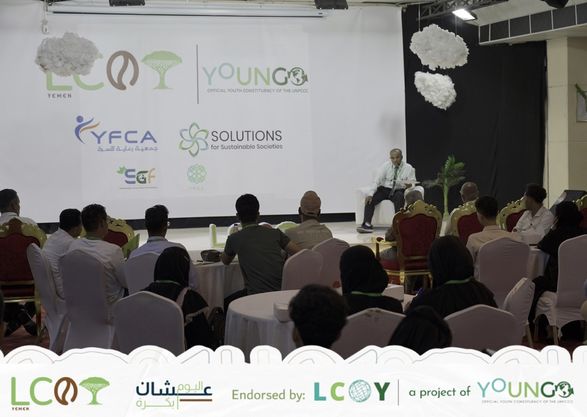
The Local Conference of Youth on Climate (LCOY Yemen), held in Hadhramaut, featured a workshop titled "Marine Environment and Pollution Protection".
Dr. Jaffar Baamer, the workshop speaker, discussed the significance of the marine environment and the necessity of safeguarding it from pollution to preserve our marine resources and maintain ecosystem balance.
A Threat to Our Marine Resources
Dr. Baamer emphasized the numerous challenges facing the marine environment, including pollution from industrial and human waste, overfishing, and climate change.
He pointed out that these challenges jeopardize marine resources and negatively impact marine biodiversity, posing a threat to food security and the national economy.
Mangroves: A First Line of Defense Against Cyclones
Dr. Baamer stressed the importance of mangroves, describing them as "a first line of defense against cyclones," and urged for their cultivation and protection from destruction.
He explained that mangroves help reduce wave intensity, protect coastal areas from floods, stabilize soil, and provide natural habitats for various marine organisms.
The Role of the Marine Environment in Climate Balance
Dr. Baamer highlighted the crucial role of the marine environment in maintaining climate balance by absorbing carbon dioxide and releasing oxygen.
He clarified that coral reefs, in particular, are among the most essential components of the marine environment and significantly contribute to carbon dioxide absorption.
Endangered Coral Reefs
Dr. Baamer warned that coral reefs face a significant threat due to climate change, including rising water temperatures and increasing ocean acidity.
He stressed the urgency of taking immediate measures to protect coral reefs from extinction due to their ecological and economic significance.
A Shared Responsibility
Dr. Baamer called upon all members of society to assume responsibility for protecting the marine environment by reducing pollution, conserving mangroves, and supporting coral reef protection initiatives.
He emphasized that protecting the marine environment is a national duty and a shared task that necessitates the collaboration of all relevant parties, including governmental, non-governmental, and community organizations.